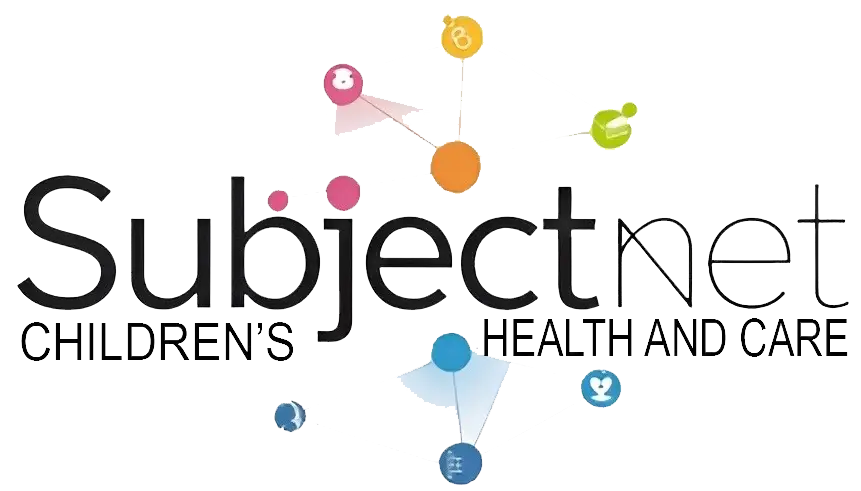ADHD : Understanding Neurodevelopmental Differences in Children with ADHD and Social-Behavioral Challenges
Table of Contents
If you’ve noticed your child struggling to focus, stay organized, or make friends, you’re likely familiar with the complex world of attention-related and social-behavioral differences. These challenges, seen in conditions like Attention-Deficit/Hyperactivity Disorder (ADHD) and other neurodivergent profiles, can be hard to navigate and may leave you with many questions. Understanding the nature of these conditions, as well as the ways to support children with them, is crucial to fostering their success.
This guide sheds light on ADHD and the spectrum of social-cognitive differences. It also provides insights into effective interventions and answers common questions you may have.
1. Understanding Neurodevelopmental Differences
Neurodevelopmental conditions encompass a wide range of traits that impact how children think, feel, and interact with the world around them. ADHD and related social-cognitive challenges are among the most common, affecting nearly 10% of children in the U.S. These children may have difficulty with attention, emotional regulation, impulse control, or social cues.
| Neurodevelopmental Condition | Approximate Prevalence in U.S. Children |
|---|---|
| ADHD | 9.8% |
| Social-Cognitive Differences | 1-2% (in conjunction with ADHD) |
| Co-Occurrence (ADHD + Social-Cognitive Differences) | 50-70% |
While every child’s experience is unique, understanding these profiles can help you recognize patterns that may benefit from supportive intervention.

2. What Is ADHD?
ADHD is characterized by persistent patterns of inattention, hyperactivity, and impulsivity. These behaviors can vary widely in severity and type, typically classified into three main types:
- Predominantly Inattentive: Trouble sustaining focus, easily distracted, prone to daydreaming, and forgetful.
- Predominantly Hyperactive-Impulsive: Excessive fidgeting, difficulty sitting still, impatience, and impulsive actions.
- Combined Presentation: A mixture of both inattentive and hyperactive-impulsive symptoms.
ADHD symptoms often emerge by age 7, but they may become more noticeable in structured environments like school. While every child’s situation is unique, ADHD can present challenges with academics, social relationships, and emotional well-being.
| Symptom Category | Typical Behaviors |
|---|---|
| Inattention | Difficulty sustaining focus, forgetfulness |
| Hyperactivity | Fidgeting, constant movement, impulsiveness |
| Impulsivity | Interrupting others, difficulty waiting |
3. Exploring Social-Cognitive Challenges in Children
For some children, social interactions may feel like solving a puzzle. These challenges go beyond ADHD, often involving difficulties with understanding social cues, interpreting others’ emotions, and responding in socially expected ways. While ADHD can include social-cognitive struggles, they aren’t always present in every child with attention issues.
Key social-cognitive traits may include:
- Difficulty with Nonverbal Cues: Struggling to read body language or tone.
- Social Pragmatics: Challenges in conversational skills, such as taking turns in conversation.
- Emotional Regulation: Difficulty managing emotional responses, particularly in group settings.
| Social-Cognitive Trait | Common Examples |
|---|---|
| Nonverbal Communication | Difficulty interpreting body language |
| Conversational Pragmatics | Talking excessively or interrupting others |
| Emotional Regulation | Difficulty managing reactions in social situations |

4. Diagnosing ADHD and Related Social-Behavioral Challenges
ADHD and related social-cognitive patterns can be complex to diagnose, often requiring a combination of behavior observation, family interviews, and formal assessments. Many children with ADHD or social difficulties may appear simply “high-energy” or “daydreamers,” making it essential to consult a specialist if you have concerns.
A formal ADHD diagnosis typically involves:
- Clinical Interviews: Gathering a comprehensive history of behaviors.
- Behavioral Checklists: Tools like the Conners Comprehensive Behavior Rating Scales or the Vanderbilt ADHD Diagnostic Rating Scales.
- Observation: In settings like classrooms, where focus and attention are easily observed.
5. Influencing Factors and Causes
While the exact cause of ADHD is unknown, a combination of genetics, environment, and brain structure factors appear to play a role. Social-cognitive challenges, which often overlap with ADHD, may also stem from similar influences.
- Genetic Factors: ADHD often runs in families, with specific gene variations linked to the dopamine system, which affects attention and motivation.
- Environmental Factors: Prenatal exposure to tobacco, alcohol, or stress, as well as early exposure to lead, may contribute.
- Brain Structure and Function: Studies suggest children with ADHD often have slight differences in the development of brain areas like the prefrontal cortex, which controls attention and impulse regulation.
| Influencing Factor | Impact on ADHD and Social Cognition |
|---|---|
| Genetics | Increases risk in family members |
| Environmental | Exposure to toxins or prenatal stress |
| Brain Development | Differences in regions affecting attention |
6. Research Insights into ADHD and Social-Behavioral Patterns
Research into ADHD and social-cognitive challenges continues to evolve, revealing new insights into how these differences affect learning and behavior.
Neurodevelopmental Pathways and Dopamine
Dopamine, a brain chemical linked to motivation, plays a significant role in ADHD. Studies have found that children with attention-related challenges often have lower dopamine levels, affecting their ability to sustain focus. Research into brain imaging has shown slight structural differences in areas like the prefrontal cortex and basal ganglia, both crucial for self-regulation.
Co-Occurrence of ADHD and Social Difficulties
Approximately 50-70% of children with ADHD also experience social-cognitive issues. This overlap can complicate social interactions, as impulsivity and inattention impact their ability to pick up on social cues and respond appropriately.
Impact of Early Intervention
Early, tailored support for children with ADHD or social-cognitive challenges has been shown to improve social skills, academic outcomes, and overall self-esteem. By recognizing and addressing these traits early, children can learn strategies for managing their behavior and developing stronger interpersonal skills.
| Research Finding | Implication |
|---|---|
| Dopamine and Motivation Link | Lower dopamine affects attention |
| Structural Brain Differences | May explain self-regulation challenges |
| High Co-Occurrence of ADHD and Social-Cognitive Difficulties | Complicates social development |
7. Therapies and Interventions
Many interventions can support children with attention-related and social-behavioral challenges. Here are some key approaches:
- Behavioral Therapy: Teaches children to replace impulsive actions with positive behaviors, helping them learn to manage their actions more effectively.
- Social Skills Training: Focuses on teaching children how to recognize social cues, practice turn-taking, and improve conversational skills.
- Cognitive Behavioral Therapy (CBT): Helps children identify thought patterns that contribute to negative emotions or behaviors.
- Medication: While not for everyone, some children benefit from medications that improve focus and impulse control.
| Intervention Type | Focus |
|---|---|
| Behavioral Therapy | Replacing impulsive actions |
| Social Skills Training | Developing social cues, turn-taking |
| Cognitive Behavioral Therapy | Managing negative thought patterns |
| Medication | Improving focus and impulse control |
8. Supporting Your Child at Home and School
Your role as a parent is essential in helping your child navigate these challenges. Here are some ways to support your child’s growth:
- Establish Clear Routines: Regular routines help children with attention challenges anticipate their day and stay organized.
- Encourage Social Play: Structured social activities, like playgroups or sports, allow your child to practice social skills in a positive environment.
- Break Down Tasks: Help your child focus by breaking tasks into smaller, manageable steps.
- Collaborate with Teachers: Work closely with educators to implement strategies that support your child’s focus and social skills.
| Support Strategy | Benefits |
|---|---|
| Clear Routines | Builds structure and organization |
| Social Play | Improves social skill practice |
| Task Breakdown | Reduces overwhelm, improves focus |
| Teacher Collaboration | Ensures consistent support at school |
9. Frequently Asked Questions (FAQs)
1. Does ADHD go away as a child grows older?
Not exactly. While some children see improvements as they mature, ADHD can persist into adulthood. However, many children learn strategies to manage symptoms effectively.
2. Are social-cognitive difficulties part of ADHD?
Not always. While some children with attention challenges also struggle socially, these challenges can be separate from ADHD and may require unique support.
3. Can a child with attention issues excel academically?
Absolutely. With the right support, many children with attention challenges
thrive in school and beyond. Tailored learning approaches and strong family support are key.
4. Should I consider medication for my child?
Medication can help some children manage symptoms, but it’s not the only option. Behavioral therapies, social skills training, and environmental changes can also make a significant impact.
5. How can I help my child make friends?
Encourage structured social activities and talk to them about social cues. Practicing simple social skills like taking turns and listening can make a big difference over time.
Conclusion
Navigating neurodevelopmental differences in children can be challenging, but understanding the unique aspects of attention and social-cognitive patterns is an essential first step. By recognizing these traits early and seeking appropriate support, you can help your child thrive. With patience, targeted interventions, and a collaborative approach between home and school, children with attention and social challenges can build lasting skills that boost their confidence, relationships, and academic success.
Citations
- Centers for Disease Control and Prevention (CDC). (2023). ADHD: Data and Statistics.
- National Institute of Mental Health (NIMH). (2023). Brain Imaging and ADHD Research.
- American Academy of Pediatrics. (2022). Diagnosis and Management of ADHD in Children.
- Harvard University’s Center on the Developing Child. (2021). Early Interventions for Social-Cognitive Development.







